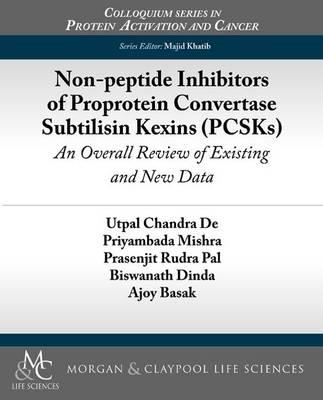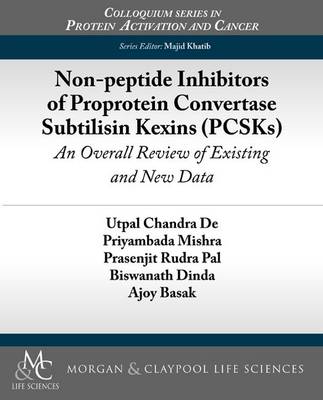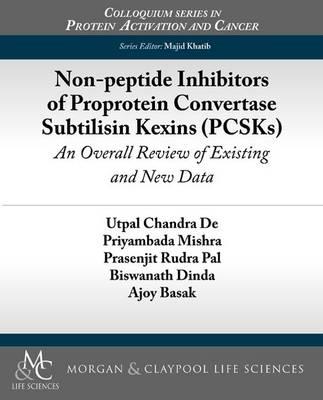Non-peptide Inhibitors of Proprotein Convertase Subtilisin Kexins (PCSKs): An Overall Review of Existing and New Data
The Ca+2-dependent mammalian Proprotein Convertase Subtilisin Kexins (PCSKs) or Proprotein/ Prohormone Convertases (PCs) are a family of endoproteases that play critical roles not only in normal development and metabolism but also in various physiological and pathological conditions. These were initiated by the proteolytic processing of large inactive proproteins into their shorter bioactive mature forms by the PCSK enzymes. These events take place in a highly selective, orchestrated, and stepwise manner. Among the various proprotein substrates of PCSK enzymes, particularly important are the precursor growth factors that include proPDGF-A, B, proIGF-1, 2 and proVEGF-C because of their strong implications in neoplasia initiation, progression, and metastasis. As a result of these findings, PCSK enzymes, particularly furin or PCSK3, became a major target for possible interventions of cancer via the use of their selective inhibitors. Significant progress has been accomplished in the development of peptide and protein-based PCSK inhibitors. However, non-peptide PCSK9 inhibitors are more preferable because of their drug-like and other characteristics. So far, a few non-peptide inhibitors of PCSK enzymes of various types of chemical structures have been described in the literature. These include (i) Carbocyclic compounds of diterpene and streptamine class. (ii) Nitrogen (N)-based heterocyclic compounds of various types and chemical structures such as (a) pyrrolidine bis piperazines, (b) Cu/Zn chelating terpyridine derivatives; (iii) Oxygen (O)-based Heterocyclic compounds of varying types of chemical structures such as (a) Flavonoids, (b) Coumarins of simple and dimeric types, (c) Quinonoids, (d) Iridoids; (iv) Aromatic compounds such as (a) Aryl guanidino and amidino derivatives, (b) Naphthyl fluorescein derivative, and (c) Phenyl Arsonic acids; and (v) C2-symmetrical aromatic azo-compounds. When measured against a small peptidyl-MCA fluorogenic substrate, these inhibitors displayed IC50 values ranging from nM to ?M. A number of these inhibitors exhibited significant anti-PCSK activity when tested in ex vivo or cell culture conditions. This article provides an overall review of all non-peptide PCSK inhibitors so far reported in the literature along with those we identified recently for the first time and not yet published. The potential implications of these molecules as biochemical, therapeutical, or clinical agents will also be discussed.
-
Autore:
-
Editore:
-
Collana:Colloquium Series on Protein Activation and Cancer
-
Anno:2012
-
Rilegatura:Paperback / softback
-
Pagine:76 p.
Le schede prodotto sono aggiornate in conformità al Regolamento UE 988/2023. Laddove ci fossero taluni dati non disponibili per ragioni indipendenti da Feltrinelli, vi informiamo che stiamo compiendo ogni ragionevole sforzo per inserirli. Vi invitiamo a controllare periodicamente il sito www.lafeltrinelli.it per eventuali novità e aggiornamenti.
Per le vendite di prodotti da terze parti, ciascun venditore si assume la piena e diretta responsabilità per la commercializzazione del prodotto e per la sua conformità al Regolamento UE 988/2023, nonché alle normative nazionali ed europee vigenti.
Per informazioni sulla sicurezza dei prodotti, contattare productsafety@feltrinelli.it



